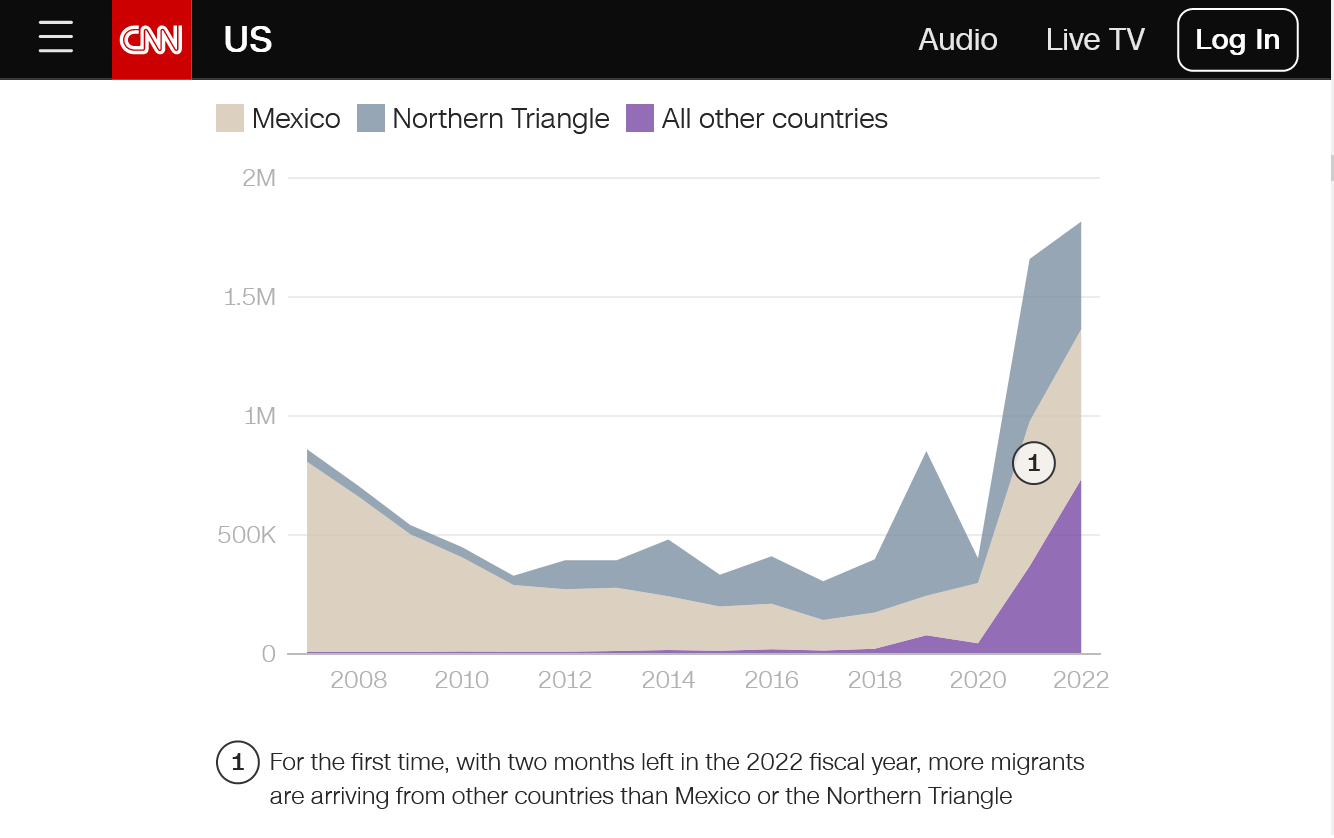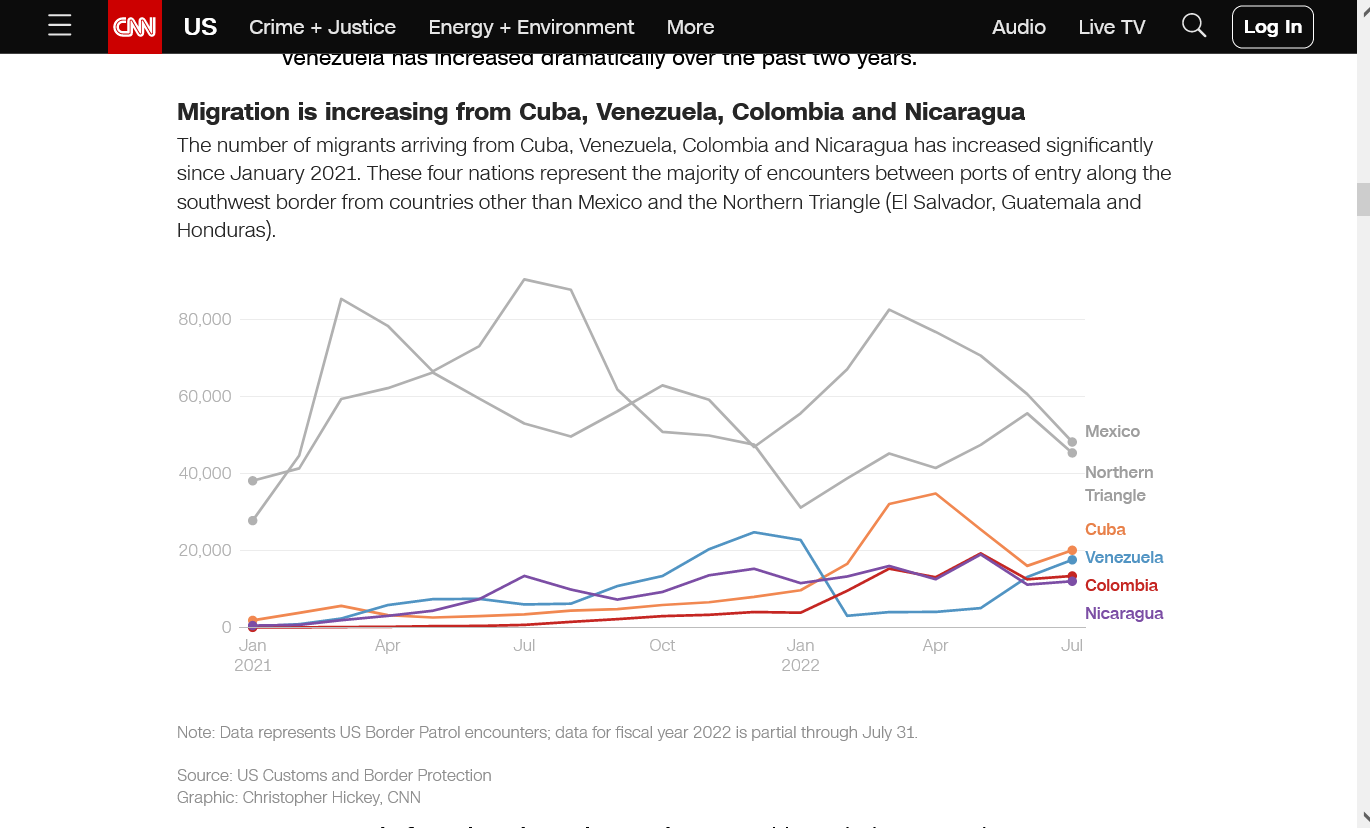The most ironic thing is that a year ago, the right was really upset about immigrants being bused north and the left was encouraging it..........the complete opposite of the current dynamic!
Catch-and-Bus: Thousands of Freed Border-Crossing Immigrants Are Dispersing Across America
Charters and Greyhound are delivering them where they want to go
By Todd Bensmanon March 31, 2021
DEL RIO, Texas — On a recent evening with the night ahead looking long, an idling charter bus parked on a lot prepared to disperse a new kind of import throughout the American landscape.
The bus and a small van nearby were packed with 60 or so mostly Haitian families fresh out of the Rio Grande from their illegal crossings.
After testing negative for Covid and other processing, the U.S. Department of Homeland Security had given them legal documents and released them to a local nongovernmental organization, the Val Verde Border Humanitarian Coalition, just blocks from the river in this south Texas border town.
For another day or so, coalition volunteers helped them arrange to wire in money for bus tickets and lodging in the cities to which the buses will take them. Like at least 20 other buses that had each carried 50 people in just the first three weeks of March, this one soon rumbled onto the long road from this Texas border town carrying happy, chattering passengers to new American lives in Orlando, Fort Lauderdale, and West Palm Beach in Florida, as well as Newark, N.J.
“They feel happy because they’re in the United States,” said Lorenzo Ortiz of the El Buen Samaritano Migrante church, who helps coordinate the daily bus rides from Del Rio to where the new immigrants say they want to go. “They want to get as soon as possible to their destination. They’re all going to apply for asylum. They’re all good people.”
A Vast Unseen Conveyor Belt from Border to Interior America
The buses rolling in a steady daily succession out of Del Rio — one charter a day, seven days a week, and before that weeks of filling Greyhound buses — represent a microcosm of a much broader aspect of the unfolding mass-migration crisis at the southern border that has attracted limited media coverage and occurs largely outside public view. Tens of thousands of immigrants caught illegally crossing the border and then released under the new leniency policy of President Joe Biden are now dispersing to four corners of the United States on buses, with some of the more moneyed ones taking passenger jets.
As best as the Center for Immigration Studies can determine from interviews and scattered media reporting, the buses are leaving regularly from Del Rio, the Texas Rio Grande Valley communities, and Laredo, but the busing also appears to be going on in Arizona, as well as in California.
Where are the buses going? They often drop their Haitian, Venezuelan, and Cuban passengers in Florida and New Jersey. Those from Nicaragua and other Central American nations have been delivered to Tennessee, Massachusetts, Indiana, Michigan, North Carolina, Georgia, Kentucky, and to large cities in Texas such as Dallas and Houston.
Most will likely use their time to apply for asylum, a lengthy, back-logged process that allows for work authorization and Social Security cards during an adjudication process that can drag on for years.
In Del Rio, at least, the immigrants are then dropped off at Burrow’s Val Verde Border Humanitarian Coalition. She and her staff of unpaid volunteers help the immigrants contact relatives or friends, figure out how to get bus fare paid or money wired in, and then the transportation part. Organizations like hers operate in other border towns doing the same work.
The immigrants have to pay the entire bus fare, Burrow said, and receive no government assistance for travel. Some arrive with some money. Almost everyone seems to know someone, a relative or friend, willing to wire money or buy bus tickets and incidentals.
In the hectic early days, the Del Rio group tried to arrange for Greyhound buses to take the immigrants to bigger city bus stations in San Antonio, Dallas, or Houston, where the travelers could transfer to other buses going their way. But there weren’t enough guaranteed bus seats in the local commercial fleets here and in San Antonio, 130 miles away, to meet demand, Ortiz said. So at least in Del Rio, dedicated charter buses were arranged after enough immigrants declared an interest in traveling to a particular region.



